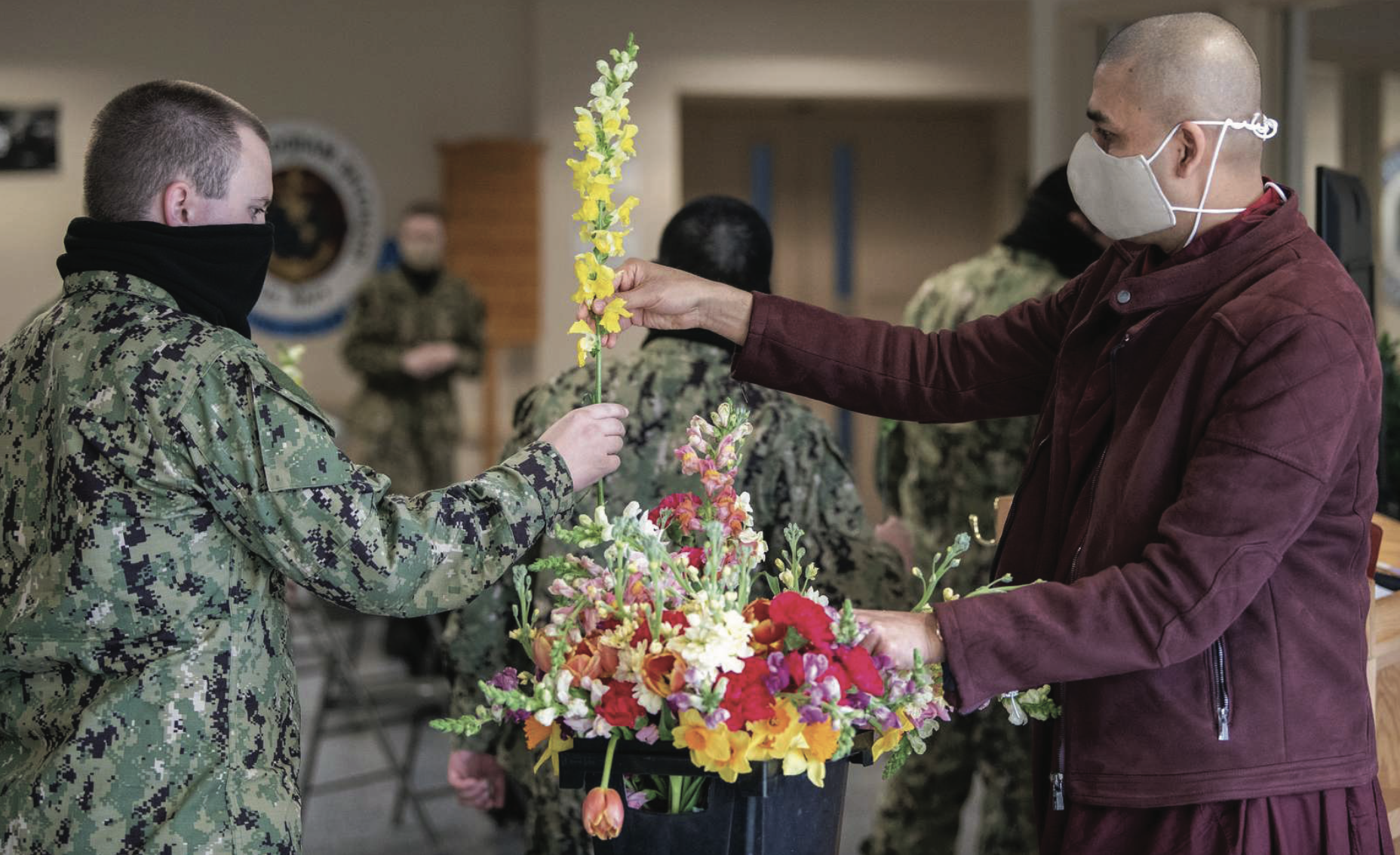
Everywhere from prisons and the military to hospitals, Buddhist chaplains are finding that their non-dogmatic and often non-theistic approach is resonating with the rising non-affiliated population, writes Pamela Gayle White in the Buddhist magazine Tricycle (Spring). In the last decade, the chaplaincy in Buddhism has expanded considerably, with “dharma-inspired chaplain-track degrees, certificate programs, and books for those looking to enter the field.” “Mapping Buddhist Chaplains in North America,” a recent multi-institutional study funded by Harvard Divinity School, found in a survey of 425 chaplains that more than half had gone through Christian-based Clinical Pastoral Education (CPE) programs. Buddhist participants in these programs find that Christian suffused concepts, such as hope and the belief that things will get better, run against the contributions they see themselves offering to the chaplaincy, such as meditation, presence, and a non-theocentric voice. It is the last value that especially appeals to the non-affiliated people they encounter, and White reports that these chaplains in fact “find themselves relegated to working with the nones.”
These Buddhist chaplains see themselves as engaged in “code-switching,” as they minister to theistic and then non-theistic clients. The inroads that mindfulness has made in prisons and other sectors of society make the chaplains’ emphasis on meditation seem non-threatening. Since not all Buddhist groups have ordained clergy, there has also been greater flexibility in allowing non-ordained Buddhists to minister as chaplains or making ordination include laypeople as well as priests and monks. But Buddhist chaplains are trying to work outside the mold of the chaplaincy that has been established for decades, such as by seeking to serve as spiritual counselors or even “public theologians” as well as religious care providers. The issue of “compassion fatigue” or burnout has become more important since the pandemic for all chaplains and clergy, but many Buddhist chaplains “feel very alone and disconnected.” Organizations like the Chaplaincy Innovation Lab, based at Brandeis University, have worked to create resources and support services for chaplains, with the Buddhist Chaplains Peer Circle providing more specific ministry and fellowship to Buddhists in the field. The circle hosts monthly virtual gatherings and plans to “expand and deepen networking in order to support and connect Buddhist chaplains across traditions and roles.”
 Lt. Piyaratana Hingulwala, a Buddhist chaplain at Recruit Training Command, hands a flower to a recruit during a Vesak ceremony inside the Recruit Memorial Chapel. Vesak is a celebration of the birth, enlightenment and death of Buddha. More than 35,000 recruits train annually from the Navy’s only boot camp. (U.S. Navy photo by Mass Communication Specialist 1st Class Spencer Fling) (source: NARA & DVIDS Public Domain Archive)
Lt. Piyaratana Hingulwala, a Buddhist chaplain at Recruit Training Command, hands a flower to a recruit during a Vesak ceremony inside the Recruit Memorial Chapel. Vesak is a celebration of the birth, enlightenment and death of Buddha. More than 35,000 recruits train annually from the Navy’s only boot camp. (U.S. Navy photo by Mass Communication Specialist 1st Class Spencer Fling) (source: NARA & DVIDS Public Domain Archive)